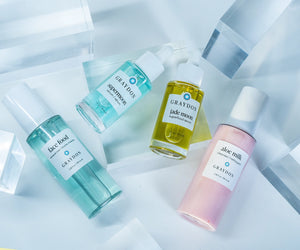If your skin is looking a little red and irritated your first thought may be to panic and start slathering on all the products in your bathroom cabinet. But creams can only do so much if you don’t treat the root of the problem.
Often times skin inflammation is actually a signal from your body that means it’s recognizing an attack (whether it be an infection or sunburn) and the manifestation of inflammation is what helps to kick-start a healing process. Yes, turning beet red is just your bodies way of saying that help is on the way.
Skin inflammation can fall under one of two camps: acute and chronic. Acute is when inflammation is temporary and is usually linked to things like acne, sunburns, and allergic reactions. This can result in redness, swelling sensitivity or pain but won’t last for very long.
It’s only when one develops chronic inflammation that you should get worried. If your inflamed skin lasts for more than 6 months, that means you’re in chronic territory. Rather than dismissing your ruddy complexion as forgetting to apply sunscreen on a hot day, you are most likely to have a skin condition like rosacea, eczema or psoriasis.
Once your skin barrier has been compromised, chronic inflammation eventually leads to a breakdown in collagen. Collagen is naturally produced in the body and is responsible for keeping our skin looking plump and wrinkle-free. Once collagen production decreases, fine lines and wrinkles will begin to appear.
And yes you guessed it: Chronic inflammation can also cause us to age faster.
So how do we make sure that doesn’t happen? Well if you want to keep your inflamed skin under control, try to minimize stress in your life. Changes in temperature can also cause inflammation along with hormonal changes too. Cutting out dairy and caffeine from your diet (which are common triggers) can also make a big difference.
Main skincare ingredient culprits are usually ones with SLS or fragrance. Creams with synthetic fragrances can cause a reaction for more sensitive skin types.
Look for gentle ingredients like willow bark, chamomile, green tea, aloe vera and niacinamide instead to battle inflammation.
When cleansing, make sure to use lukewarm water as hot water can dry out your skin. Use a gentle and pH balancing cleanser like our Face Foam which contains ingredients like white willow bark is brilliant at battling redness and inflammation.
Soothing ingredients like chamomile can also improve your complexion. Chamomile tea has long been a natural remedy to soothe and protect your gut health. When applied topically, it benefits your skin with powerful anti-inflammatory and antiseptic properties. It can even help with acne scars, dark spots and combat breakouts. You can find chamomile in our Putty moisturizer.
Aloe vera is also a great ingredient to look out for. We have that of course in our Aloe Milk Cleanser but also in our Face Glow as well.
We've also added niacinamide into our Aloe Milk Cleanser. This water soluble ingredient is quickly absorbed into the skin and can help relieve redness.
Lastly, you can never underestimate the power of green tea. High in antioxidants, this incredible superfood can help slow signs of premature aging and protect you from free radicals. Add some of this into your daily regime by using our Matcha Mint Shampoo and on your complexion with our Face Glow.
Do you have any tips or tricks when it comes to dealing with skin inflammation? Comment down below and let us know.



